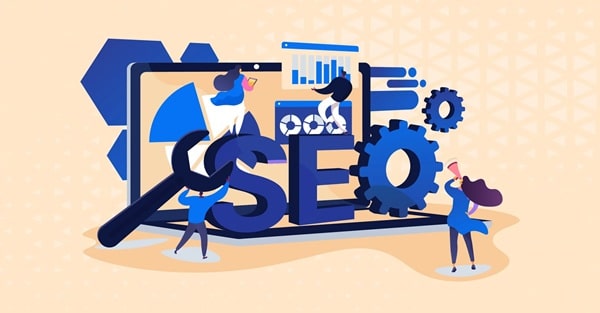Starting your own business feels epic. You’re juggling product ideas, pitch decks, hiring, and everything in between. Naturally, you’ll want all this effort to pay off—and fast. That’s why many founders opt for a quick DIY approach to SEO. It seems smart: save money, stay agile, and tick that box without calling in outside help.
But here’s the truth: treating SEO like a quick hack rather than an ongoing strategy can actually backfire. It’s like skipping the foundation when building your house—you might save time now, but it won’t hold up when the growth heat kicks in.

The False Economy of DIY SEO
Most buzzwords in the SEO space—keywords, meta tags, backlinks—make it sound like anyone can chase rankings by copying instructions. However, the internet is littered with “SEO best practices” that are outdated or ineffective.
So how do things go south?
- You cram a ridiculous number of keywords into your content—or worse, auto-generate copy with AI, hoping it passes muster.
- You install every SEO plugin on your WordPress site, assuming more features = better results.
- You follow random ranking guides and skip important fundamentals like site speed, mobile usability, or content structure.
In the early days, you might think this works. There might be a bump in traffic. But give it a few months—and Google’s algorithms shift. Your “optimized” site stalls. Your bounce rate goes up. Competitors zoom past you in SERPs. And you have no idea why.
Why Startups Deserve Expert Help
Most startup founders aren’t neglecting SEO out of ignorance—they just can’t spare the time or expertise. That’s exactly why bringing in a trusted SEO company can be a total game-changer.
Here’s how:
- Technical Excellence Under the Hood: SEO isn’t just about keywords. It’s about site architecture, crawlability, fast load times, structured data, and error-free sitemaps. An experienced agency can audit these areas quickly and efficiently. Your site becomes not just findable—but easy for Google to understand and recommend.
- Content That Actually Converts: Labs and teams that build startups are great at solving user problems—but SEO involves translating those solutions into copy that ranks. That means researching the right keyword clusters, mapping clear intent to useful content, structuring articles for readability, and linking thoughtfully. Expert SEO pros know how to blend clarity with strategic optimization.
- Ongoing Adaptation: SEO is a marathon, not a sprint. Search engines update all the time. A good SEO partner is monitoring updates, tracking shifts in traffic, and continually adapting your strategy. So you don’t just survive algorithm changes—you thrive through them.
- ROI That Scales: A proper SEO investment compounds. Each well-optimized page becomes an asset, generating traffic, leads, and brand trust for months—sometimes years. Compare that to time spent troubleshooting plugins or experimenting with keywords that go nowhere. In the end, paid experts beat DIY every time.
When DIY Works—and When It Doesn’t
Sure, scrappy SEO can work early on. If you’re a solopreneur with a niche topic, you can get eyeballs with basic blog posts, strong outreach, and occasional tweaks. You learn a lot in the process. That’s valuable.
But there comes a point of diminishing returns. When:
- Traffic has plateaued despite more content
- You’re worried about losing rankings with algorithm changes
- You’re running eCommerce or SaaS—we’re talking actual dollars riding on visibility
- You want confidence that your site is well-maintained and scalable
…that’s when trusting an SEO company becomes more investment than expense.
Final Thoughts on Scaling Smart
Look, if you’re early-stage and cash-smart, start DIY—just make sure you do it the right way: keep things lean, avoid shady hacks, and invest in quality. Track your traffic. Measure signal over noise.
But once you’re ready to scale or your business model depends on recurring traffic, take the leap and work with an SEO company. It’s the difference between slowly topping up a leaky bucket and building a full-on, self-sustaining growth engine.

